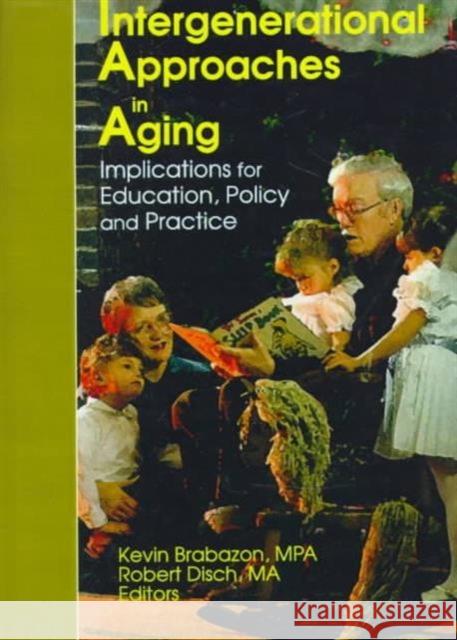Intergenerational Approaches in Aging : Implications for Education, Policy, and Practice » książka
Intergenerational Approaches in Aging : Implications for Education, Policy, and Practice
ISBN-13: 9780789003560 / Angielski / Twarda / 1997 / 298 str.
Intergenerational Approaches in Aging : Implications for Education, Policy, and Practice
ISBN-13: 9780789003560 / Angielski / Twarda / 1997 / 298 str.
(netto: 428,21 VAT: 5%)
Najniższa cena z 30 dni: 420,85
ok. 16-18 dni roboczych.
Darmowa dostawa!
In Intergenerational Approaches in Aging: Implications for Education, Policy, and Practice, leading practitioners and academics from a variety of disciplines come together to discuss theoretical issues, current practice, and future directions for this rapidly developing field. The authors address key topics such as defining the intergenerational field, the effects of the segregation of groups by age on social function and organization in our communities, and designing, implementing, and assessing programs that create cross-generational connections. Exploring ways to provide services to different age groups while tapping the strengths and skills of each age group, Intergenerational Approaches in Aging examines the application of intergenerational approaches to important social issues as well as specific challenges faced by practitioners. It makes suggestions for integrating intergenerational studies into the higher education system and for challenging segregated services and funding programs. As the book shows, promoting cooperation between diverse segments of society also depends on: making intergenerational programming a permanent feature of public schoolsunderstanding and meeting the social, mental health, and medical needs of grandparents who are raising their grandchildrenusing observational research to study and evaluate intergenerational program effectiveness and the relationships among the people involvedviewing differences among people as assetsdeveloping intergenerational program modelsproviding children with a 'life-cycleOCOview of the worldIntergenerational Approaches in Aging offers the personnel of state and local agencies on aging, nursing homes, senior centers, and geriatric homes practical advice, innovative ideas, and supportive materials for developing and implementing intergenerational activities and programs that can benefit all parties involved. Academics and school administrators will also benefit from this book as they learn concrete methods for integrating aging education into already existing curricula and building new conceptual frames of reference for a wide variety of social issues and historical topics."











